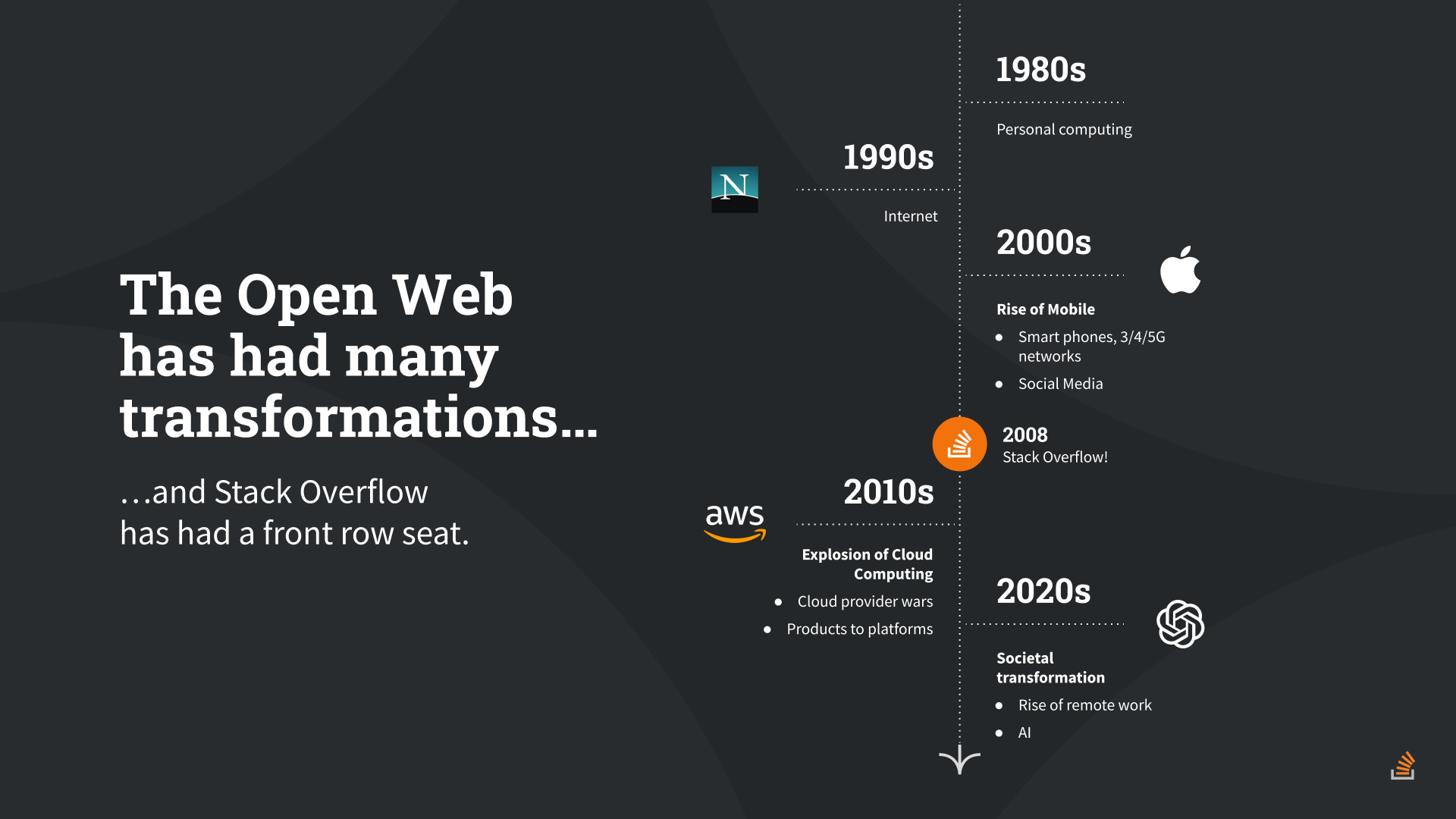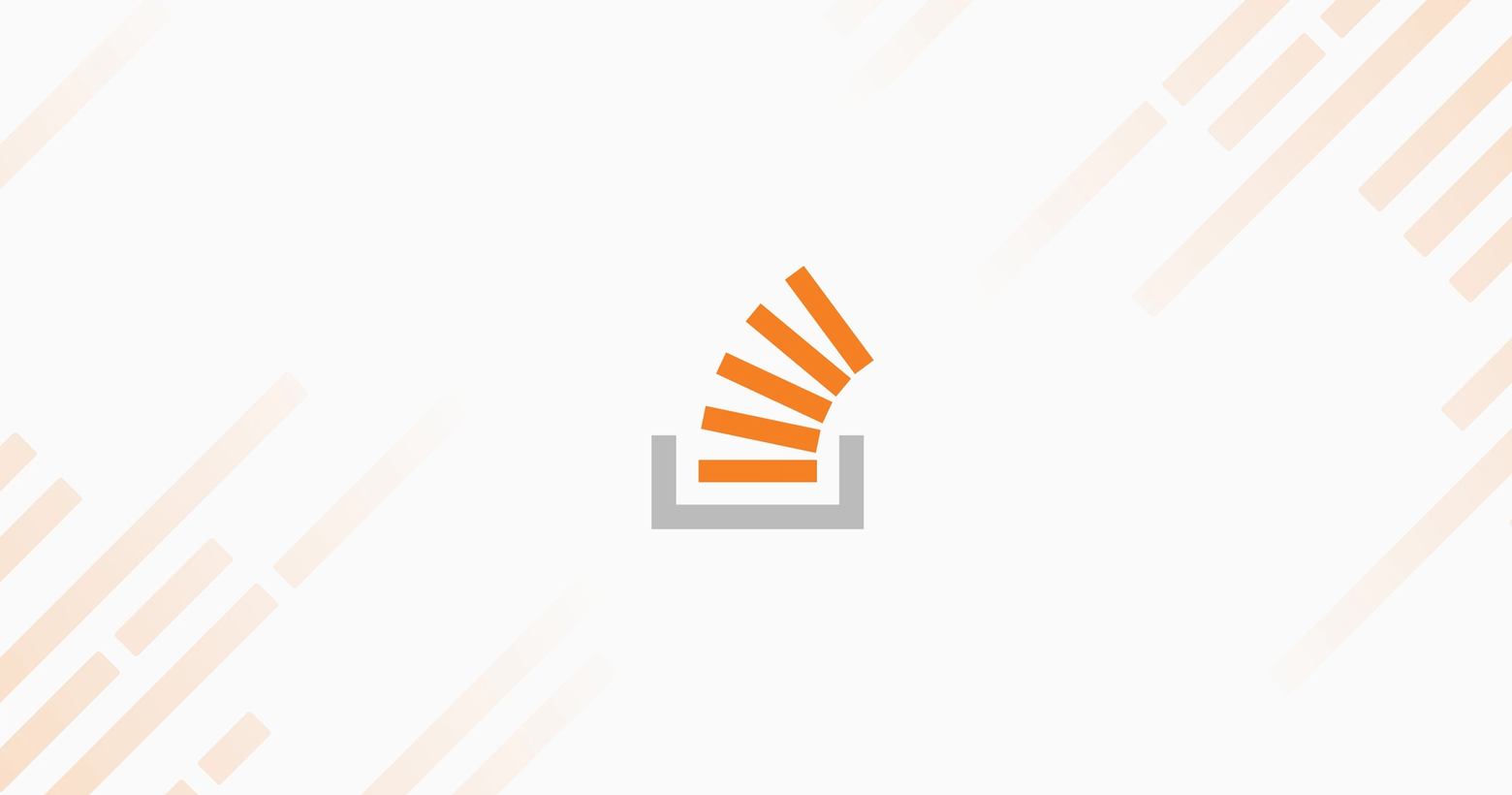If you’re weary of reading about the latest chatbot innovations and the nine ways AI will change your daily life next year, this series of posts may be for you. In it, we’ll examine how the economics of human knowledge are rapidly changing beneath our feet. And we’ll talk about the course we’re charting as one of the more stable pillars of that world.
The open web has undergone many changes, and the Stack Overflow community and team have had a front-row seat for much of it. From the rise of personal computing in the 1980s to the rise of the Internet in the 1990s to the explosion of mobile computing and cloud computing in the early 2000s, disruption and technology are synonymous with oxygen and breathing.

In this time of disruption comes a necessary time to reflect, change, and break the norms of ‘this is how it's always been done.’ With the expansion of generative AI, many LLM providers are not allowing the world to operate as it has previously. Instead, a new paradigm has emerged: content created by thousands of creators across the open web is now being used to train models without respect or attribution for the original creator. Beyond this, model providers treat these models as the ‘foundations’ for new content discovery mechanisms—like chatbots and search summarization functionality—without mutual respect for the origin of the related knowledge or its original author.
Consequently, in the current transformation, human-centered sources of knowledge are obscured. We face a world in which the old paradigms are no longer paramount, and their places in the world are redefined. Companies and organizations lucky enough to host these engines of knowledge production are at a decision point; how do they continue to monetize when the technological landscapes have changed? A change in strategy will allow these companies, AI tools, and the communities and data sets that power them to thrive. This series will cover this transition, what it means for Stack Overflow and its product strategy for the coming years. We understand this is an extensive set of changes. Still, we see growing evidence that these changes are necessary for the evolution of Stack Exchange and preserving the openness of Stack Exchange communities.
- Post 1, “Knowledge-as-a-service: The future of community business models,” will examine the history of internet disruption, how it has evolved business models more broadly, and what this means for Stack Overflow’s strategy and future.
- Post 2, “Attribution as the foundation of developer trust,” will outline critical insights from the recent Stack Overflow Developer survey and the process and technology OverflowAPI partners use for attributing content today.
- Post 3, “Ongoing community data protection,” concludes the series by outlining the strategies Stack is taking to protect the health and use of community data while balancing this against the importance of keeping content available for non-commercial use cases.
